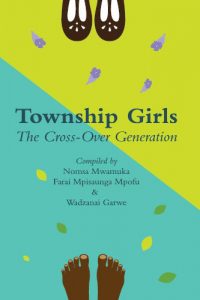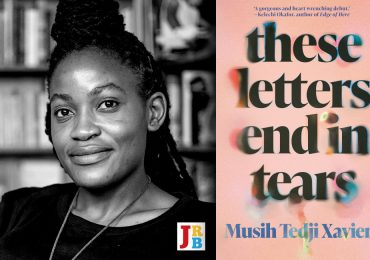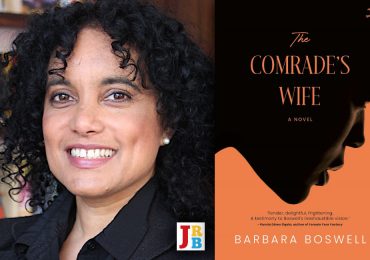A significant first step in documenting the life writing of black Zimbabwean women—The JRB Contributing Editor Panashe Chigumadzi reviews Township Girls: The Cross-Over Generation.

Township Girls: The Cross-Over Generation
Nomsa Mwamuka, Farai Mpisaunga Mpofu and Wadzanai Garwe (editors)
Jacana Media, 2019
In the nineteen-seventies, as thousands of young ‘comrades’ crossed over from Mozambique and Zambia to claim a Zimbabwe for all, a small group of black children began crossing over into Rhodesia’s historically white schools and later, suburbs. Many of these were the children of the teachers, nurses, businesspeople and other professionals who formed part of the emerging black middle class mostly living in Rhodesia’s townships. Stepping in to bear witness to these under-explored lives is Township Girls: The Cross-Over Generation, edited by Nomsa Mwamuka, Wadzanai Garwe and Farai Mpisaunga Mpofu, a collection of thirty women’s accounts of black girlhood in transition.
To have a collection of black women’s life stories, written and edited by themselves, is incredibly important for our archive. While the pioneering generation of women writers in Zimbabwe, such as Yvonne Vera, Tsitsi Dangarembga, J Nozipo Maraire and Kristina Rungano, produced seminal women-centred novels and poetry, the space for black women’s life writing has been left relatively open. That many of the essays and poems in this collection are prefaced with accounts of the doubts and trepidation the contributors experienced as they put their stories to paper provides some hint as to why: of course, one obvious reason for their nervousness is that, for many of the contributors, these are their first published works.
Beyond experience, or the lack thereof, with writing, part of the difficulty in telling such life stories is that the contributors must grapple with the complexities of their unusual childhoods of relative privilege under oppression. As Rutendo Hadebe writes:
I never shared this painful event, or the many more that reflected racial prejudice, with my parents. This I did because I knew their decision to move me to this white school had earned them a favourable status in the community. They were revered and saw themselves as pioneers. I was not about to tell them I hated the school and missed my simple township friends.
As they reflect on girlhood in Zimbabwe’s townships, historical hotbeds for the national movements as guns rattled in the countryside, the contributors reveal a wide array of political consciousnesses: those whose families ‘believed in everything white’; those whose families shipped them off to rural homesteads every holiday to ensure they retained a ken of their culture and traditions; those who were part of the nationalist movements; those whose families financially supported the comrades; those who voted for the dubious Bishop Abel Muzorewa, who would become Prime Minister of the ill-fated Zimbabwe–Rhodesia in 1979, for less than a year.
Out of the personal struggles the ‘cross-over girls’ had with consciousness spring contributions such as Nomsa Mwamuka’s ‘A Hybrid Heritage and Conflicted Identity’, Debra Patterson’s ‘Embracing My Culture’ and Farai Mpisaunga Mpofu’s ‘Two Worlds & Everything in Between’. While one contributor, Tambu Muzenda, triumphantly pulls off a part-Shona, part-English essay in ‘Kunaka Kunonakira Anoda Zvonaka Nemworo Chigariro’, the ‘two-worldedness’ of cross-over life has many contributors detailing the struggle to shirk off the accents that shroud their English—and conversely struggling with the English accents that shroud their Shona and Ndebele. For some, there is the outright loss of their mother tongue, which continues to be felt in adulthood.
While the experiences of the ‘cross-over girls’ in white Rhodesia (including the cataloguing of the various micro- and macro-aggressions they faced) is of importance, what is perhaps more significant are their reflections on their experiences within the black community. Of her time at the University of Zimbabwe, Mwamuka writes that it was ‘No longer a battleground of racial identity, class dynamics reigned, the tussle between the petite bourgeois nose brigades and the SRBs, those with a “strong rural background”’. Mwamuka recounts a growing sense of reflexivity and political consciousness over the years, so that by the time she arrives at university she is positively influenced by ‘more purpose-driven determined people from diverse and varied backgrounds’ on campus. Mpofu, on the other hand, is far less reflexive. She concludes her contribution with a bullet-point paragraph titled ‘The Special One’, detailing the reasons ‘why I know I was living an extraordinary life, a charmed life, in which one had a certain sense of entitlement’. Without any retrospective questioning, one of her bullet points states: ‘It was expected, acknowledged and accepted that you would do better, and go further than the rest’.
The inter-class relations within African communities reflected in Township Girls are interesting for at least two reasons. The first is that our society is so small there’s a wide range of ‘class’ inside each family. For example, the path for generational wealth within an African family might have been set by how many cows there were to sell to send a particular number of children to school. Your grandmother may have been the unfortunate girl in her family, so you are a cross-border trader while your cousin, the grandson of the fortunate son in the family, is now a third-generation university graduate. Where, for example, Garwe writes that ‘father had excelled at school and thus education had been a stepping stone to the external world’, one is inclined to wonder about the circumstances of the children of the aunts and uncles who may not have found ‘stepping stones’ of their own.
The second reason is that ‘class status’ is extremely precarious. Many Zimbabwean children, including me, would have been brought up on the precautionary tales of ‘vana vemabusinessman’ who grew up spoilt and stuck up, only to find themselves floundering once their parents’ wealth disappeared for one or other reason, including death. In the ‘post’-settler colony, many of our African families are a generation away from poverty, and without access to the real foundations of wealth, such as land, can be borne back into poverty within a generation. This of course was compounded by the Zimbabwean crisis.
Continually extolling the virtues of hard work and striving ingrained in them by their parents, the ‘cross-over girls’ certainly challenge this cautionary narrative. In their adult years, their biographies—ranging from full-time motherhood to professional careers in local and international institutions such as the African Union, the Southern African Development Community and the Peabody and British Academy of Film and Television Arts (Bafta) Awards—are general evidence that many have been able to maintain their middle- and upper-class stations. Nonetheless, further reflections on the challenges of maintaining generational wealth, whether while in Zimbabwe or in the diaspora—as Isabella Matambanadzo hints at when she mentions how her ‘father’s business had undergone severe shocks’ in the nineteen-nineties—would have enriched the collection. It is interesting that despite an economy where the vast majority of people do not survive on salaries but on income from kukiyakiya, many of the contributors to Township Girls emphasise their continued belief in middle class striving, hard work and education, as guarantors of success. Perhaps this is the result of the fact that many of these contributors are members of the professional class, based in more stable economies across the diaspora?
An answer might be found in the conclusion to Hadebe’s contribution. Despite the pain and humiliation suffered at the altar of the integrationist project of the transitional years, many of the contributors end their stories with gratitude for their childhoods, with few, if any, truly questioning that period, and the social, cultural and economic forces that came together to shape their unusual ‘cross-over’ experience. Despite initially proclaiming her gratitude, Hadebe opens the door for reflection, and concludes by speaking to her ambivalence:
Over the years, having travelled and lived in different countries, I now realise that our transition experience did not include a revaluation of who we are. I lost my language and a piece of my African identity and history. However, as a people I know we gained a lot of transnational qualities. We became Africans who could make it on the international stage, because our politics was simple: ‘simple’ because they were steeped in a black and white world view. If you worked hard at school and got a good qualification you would get a good job; then you would channel those rewards into family to ensure that those behind you, siblings or cousins, walked […] Ours was not a nuanced success doctrine, (but rather a ‘suck it up’ one) meaning there was no room for arguing structural imbalances based on race, gender or ethnicity.
As Hadebe goes on to say, ‘Our transition had to fit into the normative Independence narrative which was that something good was happening. The bad and ugly that came with it remains the stuff for reflective analysis today’.
Township Girls, then, provides a significant first step in documenting some of the good, bad and ugly wrapped up in the under-explored social and cultural histories of Zimbabwe’s transition. The more we document these stories, the greater our ability to reflect on, and demand more of, our world-views in the past, present and future.
- Contributing Editor Panashe Chigumadzi was born in Zimbabwe and raised in South Africa. Her debut novel Sweet Medicine (Blackbird Books, 2015) won the 2016 K Sello Duiker Literary Award. She is the founding editor of Vanguard magazine. A columnist for The New York Times, her work has featured in titles including The Guardian, Chimurenga, Washington Post and Die Ziet. Her second book, These Bones Will Rise Again, was published in 2018. She is a doctoral candidate at Harvard University’s Department of African and African American Studies. Follow her on Twitter.






One thought on “Bearing witness to unusual childhoods of privilege under oppression—Panashe Chigumadzi reviews Township Girls: The Cross-Over Generation”